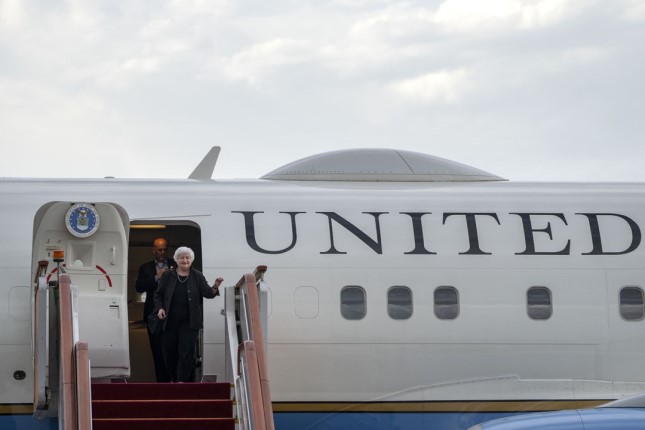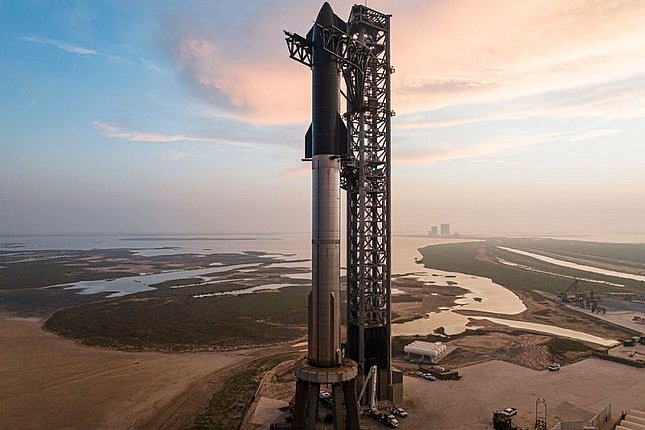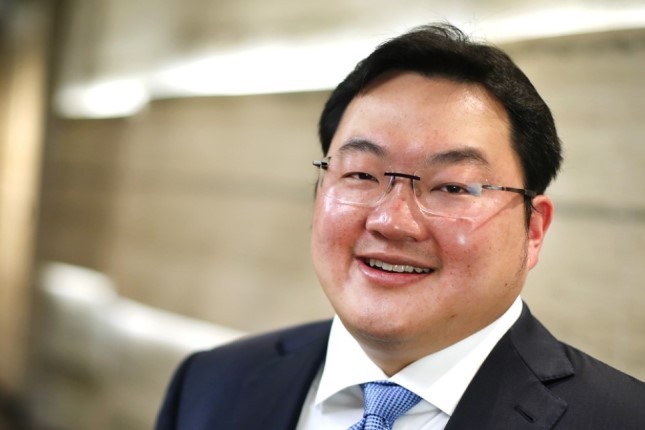Pragmatic cooperation helps China-US relations walk out of downward spiral; more time needed to rebuild trust.
US Treasury Secretary Janet Yellen arrived in Beijing on Thursday afternoon, kicking off a four-day visit to China as US-China relations stand at a critical point. While some US officials have downplayed their expectations for any major breakthroughs from Yellen's visit, Chinese experts believe that one major point of significance of Yellen's trip is to keep high-level communication channels open, which may help bilateral relations walk out of their downward spiral, while more time is needed for the two countries to rebuild mutual trust.
The US treasury chief arrived in Beijing on a mission to find common ground for the two countries to work together, as Yellen earlier revealed that she would meet with senior Chinese officials, discuss the importance of responsibly managing US-China relations, address areas of concern and tackle global challenges. Neither side has provided a detailed itinerary of her visit, which, according to the Wall Street Journal, concludes on Sunday.
Some US media outlets saw the visit as part of efforts to sooth strained relations, which also marks a "deepening thaw" in US-China relations following the recent visit of US Secretary of State Antony Blinken to Beijing.
Yellen, who is seen as a voice of moderation in the Biden administration, has been adopting a less hawkish and more pragmatic view on maintaining economic ties with China, opposing additional tariffs and warning that "de-coupling" with the world's second-largest economy would be "disastrous."
Issues on the agenda
The talks will involve the negotiations of macroeconomic and fiscal policies and the implementation of macroeconomic and fiscal policies in specific areas, such as the US debt problem, and when it comes to trade and investment issues, US tariffs on Chinese goods is also a topic of concern, as they have become a burden for American consumers, Lü Xiang, research fellow at the Chinese Academy of Social Sciences, told the Global Times on Thursday.
"If the US takes the initiative to cancel or reduce some of the tariffs, those moves could be taken as a positive sign in easing the tensions between the two countries. A small step forward in China-US relations could be very meaningful for the global economy," Lü said.
Some US media outlets said the US Treasury chief faces a diplomatic test in her high-stakes visit to China. The New York Times said she will need to "defend export controls and tariffs while explaining that the US does not aim to harm China's economy."
The key issues of discussion for both sides during Yellen's visit would be the cancellation of the US' additional tariffs on China, the withdrawal of its "301 investigation" into China, and the review of the first phase of the China-US trade agreement, Zhu Min, former deputy governor of the People's Bank of China and former deputy managing director of the IMF, told the Global Times in a recent interview.
While trade remains the cornerstone of China-US economic relations, the cancellation of additional tariffs on Chinese goods exported to the US is the first issue that needs to be discussed between the two sides, Zhu said.
Some experts also believed that Yellen may address the fiscal and financial issues between the two countries, for example, trying to persuade China to refrain from reducing its holdings of US Treasury bonds and instead increase them at the appropriate time to help the US address its own inflation issues.
"New normal"
Yellen's visit came shortly after China announced export controls on Monday on gallium and germanium, which are critical for the manufacturing of chips and other high-tech components.
China's latest export controls are not aimed at Yellen but serve as a warning shot to the US, as it has been roping in its allies to escalate the chip war and high-tech crackdown against China, disregarding the potential damage the technological "iron curtain" may cause to global supply and industrial chains, some experts said.
A US Commerce Department spokesperson said on Wednesday that the US "firmly" opposes export controls announced by China on gallium and germanium, adding that Washington will consult its partners and allies to address the issue, Reuters reported.
The gallium and germanium export controls do not target any specific country, and China informed the US and EU about the measure prior to the announcement, Ministry of Commerce spokesperson Shu Jueting said on Thursday. She said that "the export controls are not an export ban," and signify that "permits will be issued" in accordance with relevant regulations.
"The export control shows that if the US dares to infringe the interests of China, China will strike back so as to give the US a hard lesson," Dong Shaopeng, a senior research fellow at the Chongyang Institute for Financial Studies at the Renmin University of China, told the Global Times on Thursday.
China has played this "card" of imposing export controls on key minerals, and we need serious consideration not only on rare-earth supplies, but also on US debt allocation, and the exchange rate between China and the US amid a changing US-China rivalry, Dong noted.
"Despite shifting from 'de-coupling' to 'de-risking,' the essence of [US] containing China has not changed. Although Yellen and her team claimed to be rejecting economic 'decoupling,' it does not mean the US has changed its strategy to contain China," Dong said.
As high-level exchanges between the two countries in some areas such as diplomacy and economic and trade have resumed, both US and Chinese experts raised questions over whether it's possible to shape a new framework for bilateral relations or whether bilateral ties have entered a new normal.
"I think the two sides have not entered a stable and completely predictable situation. Although China's policy has been consistent and persistent, the US could come up with more unpredictable measures, considering the factors of its domestic politics, including the [upcoming] election season," Lü said.
"It will take time to rebuild mutual trust," he noted.
US Treasury Secretary Janet Yellen arrives at Beijing Capital International Airport on July 6, 2023 © VCG.Source:
Source: The Global Times.
































